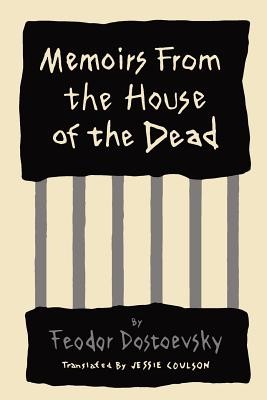
- Mēs nosūtīsim 10-14 darba dienu laikā.
- Autors: Fyodor Dostoyevsky
- Izdevējs Martino Fine Books
- Gads: 2014
- Lapas: 308
- ISBN-10 : 1614277532
- ISBN-13 : 9781614277538
- Formāts: 15.6 x 23.4 x 1.8 cm, minkšti viršeliai
- Valoda: Anglų
- Extra -10% atlaide, ievadot kodu: EXTRA
Atsauksmes
Apraksts
2014 Reprint of Original 1956 Edition. Exact facsimile of the original edition, not reproduced with Optical Recognition Software. Translated by Jessie Coulson. "The House of the Dead" is a semi-autobiographical novel first published in 1861 that portrays the life of convicts in a Siberian prison camp. The novel has also been published under the titles "Memoirs from the House of The Dead" and "Notes from the Dead House". The book is a loosely-knit collection of facts, events and philosophical discussion organized by "theme" rather than as a continuous story. Dostoyevsky himself spent four years in exile in such a camp following his conviction for involvement in the Petrashevsky Circle. This experience allowed him to describe with great authenticity the conditions of prison life and the characters of the convicts. In this almost documentary account of his own experiences of penal servitude in Serbia, Dostoevsky describes the physical and mental suffering of the convicts, the squalor and the degradation, in relentless detail. The intricate procedure whereby the men strip for the bath without removing their ten-pound leg-fetters is an extraordinary tour de force, compared by Turgenev to passages from Dante's Inferno. Terror and resignation - the rampages of a psychopath, the brief serene interlude of Christmas Day - are evoked by Dostoevsky, writing several years after his release, with a strikingly uncharacteristic detachment.10 EXTRA % atlaide
Kupona kods: EXTRA
Akcija beidzas 7d.03:24:52
Atlaides kods derīgs pirkumiem no 10 €. Atlaides nav kumulatīvas.
Derīgs tikai pirkumiem tiešsaistē.

- Autors: Fyodor Dostoyevsky
- Izdevējs Martino Fine Books
- Gads: 2014
- Lapas: 308
- ISBN-10: 1614277532
- ISBN-13: 9781614277538
- Formāts 15.6 x 23.4 x 1.8 cm, minkšti viršeliai
- Valoda: Anglų

Atsauksmes